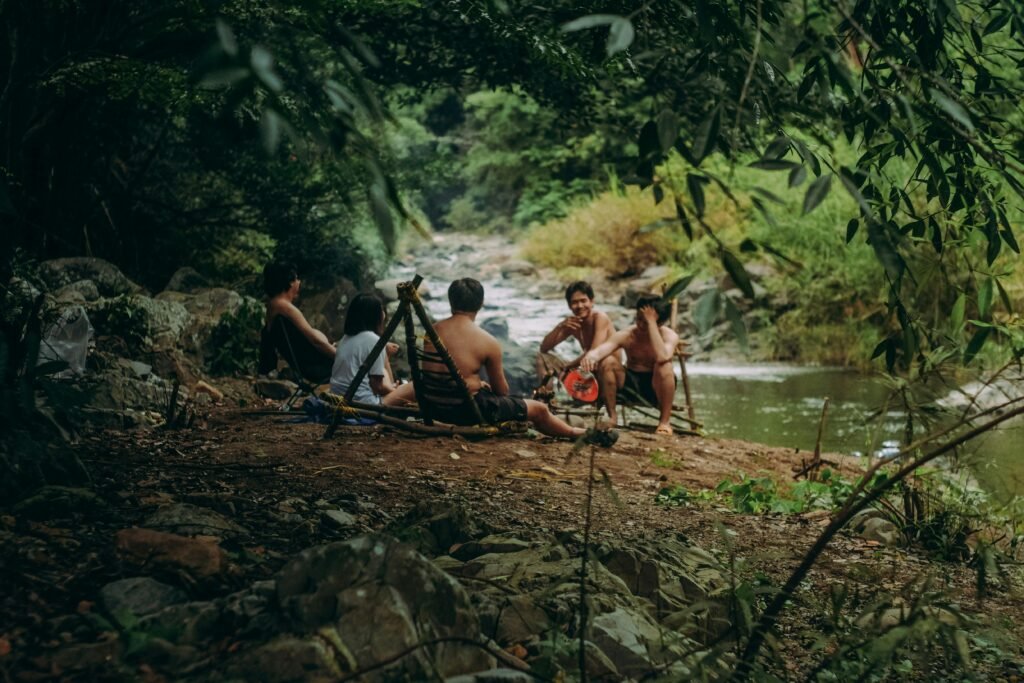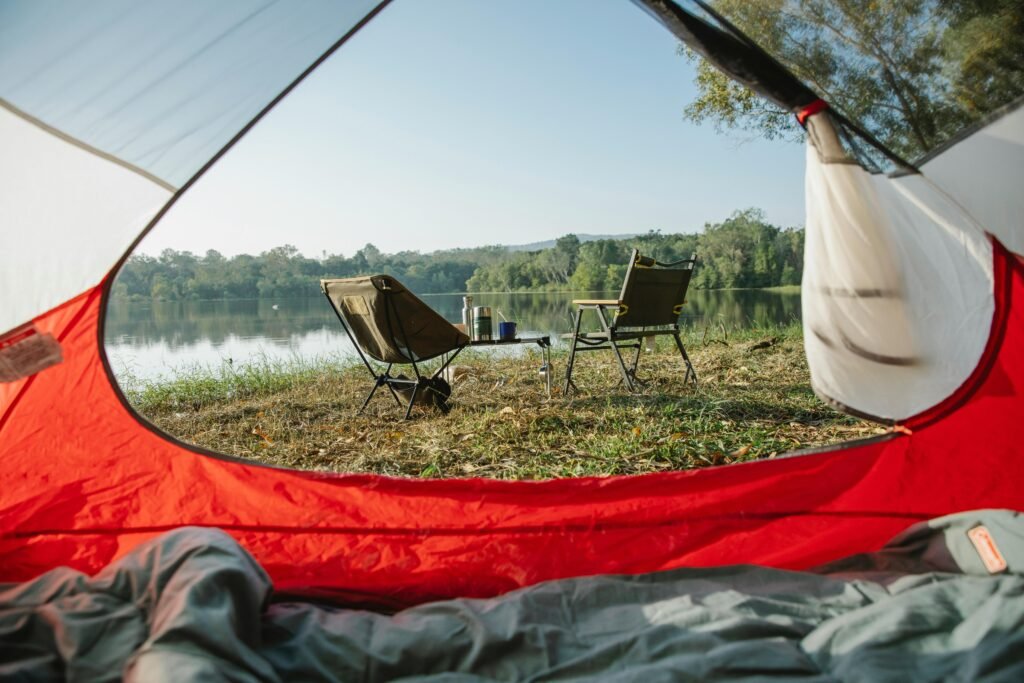Camping is an amazing way of getting out from the noise of daily life to entirely dissolve oneself into nature and develop lasting memories with buddies and relatives. However, you need fundamental camping knowledge if you want your outdoor adventure to be successful. They not only guarantee your safety but also increase the quality of your overall camping experience.
Essential Camping Skills for Beginners
Setting Up a Tent
One of the first skills every camper should master is setting up a tent. It might seem straightforward, but doing it correctly can make a huge difference in your comfort and safety. Practice pitching your tent at home before heading out on your trip. This way, you’ll be familiar with the process and can set it up quickly, even in adverse weather conditions.

Building a Campfire Safely
A campfire is more than just a source of warmth; it’s a place where stories are shared, meals are cooked, and bonds are strengthened. However, building a campfire safely is crucial to prevent wildfires and accidents. Always follow local regulations, use existing fire rings if available, and never leave your fire unattended.
Packing Properly
Proper packing is an art that can make or break your camping trip. Make sure to pack essentials like food, water, clothing, first aid supplies, and navigation tools in an organized manner. Use waterproof bags for items that must stay dry and distribute weight evenly to avoid straining your back.
Navigational Skills in the Wilderness
Using a Map and Compass
In our tech-savvy world, traditional navigational skills are often overlooked but remain vital. Learning how to read a map and use a compass can save you when technology fails or batteries die. Practice these skills regularly so you can navigate confidently without relying solely on GPS.
Understanding GPS Devices
While maps and compasses are essential, understanding how to use GPS devices can provide an extra layer of security. Familiarize yourself with your GPS device’s functions before your trip and always carry spare batteries or a portable charger.
Fire Starting Techniques
Using Fire Starters
Starting a fire can be challenging, especially in damp conditions. Carrying reliable fire starters like waterproof matches or lighters can make this task easier. Practice using them beforehand so you’re not struggling when you need warmth or cooking heat.
Creating a Tinder Bundle
A tinder bundle is essential for starting fires efficiently. Gather dry materials like leaves, grass, or bark to create a bundle that catches sparks easily. Knowing how to find and prepare tinder in various environments ensures you can start a fire under any circumstances.
Cooking Skills for Campers
ampfire Cooking Tips
Cooking over an open flame requires some practice but can be incredibly rewarding. Learn different techniques such as grilling, boiling, or using foil packets to prepare delicious meals outdoors. Always keep safety in mind by maintaining control over the fire and using proper cooking tools.

Using Portable Stoves
Portable stoves offer convenience and control over your cooking process, especially in areas where open fires are not allowed. Learn how to operate these stoves safely and effectively for quick meal preparation without compromising on taste.
Safety and First Aid Skills
Basic First Aid Knowledge
Accidents happen, even in the great outdoors. Having basic first aid knowledge can help you handle common injuries like cuts, burns, or sprains until professional help arrives. Consider taking a first aid course to build your confidence in dealing with medical emergencies.
Identifying Poisonous Plants
Nature is beautiful but can also be dangerous if you’re unaware of its hazards. Learn to identify poisonous plants like poison ivy or oak to avoid painful rashes or more severe reactions. Carrying a field guide or using plant identification apps can be helpful tools.
Water Sourcing and Purification
Finding Water Sources
Staying hydrated is crucial during any outdoor activity. Knowing where to find water sources like streams, lakes, or springs ensures you won’t run out of this vital resource. Always plan your route with water availability in mind.

Purifying Water in the Wild
Even clear-looking water can harbor harmful pathogens. Learn different water purification methods such as boiling, filtering, or using purification tablets to ensure safe drinking water throughout your trip.
Leave No Trace Principles
Respecting nature by following Leave No Trace principles helps preserve the environment for future generations of campers. This includes practices like packing out all trash, minimizing campfire impact, respecting wildlife, and staying on designated trails.
Wildlife Awareness and Safety
Encounters with wildlife are part of the camping experience but require caution and respect. Understand animal behavior and learn how to store food properly to avoid attracting unwanted visitors to your campsite.
Weather Forecast Interpretation
Weather conditions can change rapidly in the wilderness. Learning how to interpret weather forecasts and natural signs can help you prepare for sudden changes, ensuring you stay safe and comfortable during your trip.
Knot Tying Techniques
Knowing how to tie essential knots like the bowline or clove hitch can be incredibly useful for setting up shelters, securing gear, or even during rescue situations. Practice these knots until they become second nature.
Emergency Preparedness
Always have an emergency plan that includes contact information, medical supplies, navigation tools, and communication devices. Being prepared for unexpected situations can make all the difference when things go wrong.
Night Navigation Skills
Navigating after dark requires special skills and tools like headlamps or flashlights with fresh batteries. Practice moving around at night safely so you’re not caught off guard if you need to travel after sunset.
Outdoor Hygiene Practices
Maintaining hygiene in the wilderness is essential for health and comfort. Learn proper waste disposal methods, such as digging catholes for human waste, and practice personal cleanliness even when facilities are unavailable.
Mastering these essential camping skills will transform your outdoor adventures from basic survival into enjoyable experiences filled with confidence and excitement. Remember that practice makes perfect—so keep honing these skills until they become second nature!



